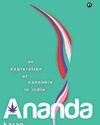
First, let the numbers sink in: India picked up five gold medals at the Paralympic Games in Tokyo this year. That’s more gold than ever won in the last 11 editions of the quadrennial event in which India participated. This year’s contingent featured 54 athletes. At Rio de Janeiro in 2016, there were only 19. And the previous best of four medals was bettered to 19 this time around—that number is also seven more than what India picked up since its first participation at the Paralympics in 1968.
It has, predictably, taken a medal haul to brings India’s para-athletes into the spotlight, but until even a few months ago, they were an invisible force, training in various arenas across the country, just as hard as their able-bodied counterparts.
For most of them, it’s been a story of perseverance—embarking on a journey of discovery that would test the limits of their abilities. But what they didn’t realize was an obvious truth—they became champions on the day they first stepped out on a sporting field.
SYSTEMS OF SUPPORT
There’s a common notion that runs in the world of sports—‘start ’em young’. Most world champions, we hear, picked up a racket or kicked a ball at about the same time they took their first wobbly steps. For para-athletes, though, this story is often different. Sharad Kumar, for instance, might well have won bronze in the high jump T42 category event, but the sport wasn’t the first, natural choice for him.
Esta historia es de la edición October 2021 de Reader's Digest India.
Comience su prueba gratuita de Magzter GOLD de 7 días para acceder a miles de historias premium seleccionadas y a más de 9,000 revistas y periódicos.
Ya eres suscriptor ? Conectar
Esta historia es de la edición October 2021 de Reader's Digest India.
Comience su prueba gratuita de Magzter GOLD de 7 días para acceder a miles de historias premium seleccionadas y a más de 9,000 revistas y periódicos.
Ya eres suscriptor? Conectar

ME & MY SHELF
Siddharth Kapila is a lawyer turned writer whose writing has focussed on issues surrounding Hinduism. His debut book, Tripping Down the Ganga: A Son's Exploration of Faith (Speaking Tiger) traces his seven-year-long journey along India's holiest river and his explorations into the nature of faith among believers and skeptics alike.

EMBEDDED FROM NPR
For all its flaws and shortcomings, some of which have come under the spotlight in recent years, NPR makes some of the best hardcore journalistic podcasts ever.

ANURAG MINUS VERMA PODCAST
Interview podcasts live and die not just on the strengths of the interviewer but also the range of participating guests.

WE'RE NOT KIDDING WITH MEHDI & FRIENDS
Since his exit from MSNBC, star anchor and journalist Mehdi Hasan has gone on to found Zeteo, an all-new media startup focussing on both news and analysis.

Ananda: An Exploration of Cannabis in India by Karan Madhok (Aleph)
Karan Madhok's Ananda is a lively, three-dimensional exploration of India's past and present relationship with cannabis.

I'll Have it Here: Poems by Jeet Thayil, (Fourth Estate)
For over three decades now, Jeet Thayil has been one of India's pre-eminent Englishlanguage poets.

Orbital by Samantha Harvey (Penguin Random House India)
Samantha Harvey became the latest winner of the Booker Prize last month for Orbital, a short, sharp shock of a novel about a group of astronauts aboard the International Space Station for a long-term mission.

She Defied All the Odds
When doctors told the McCoombes that spina bifida would severely limit their daughter's life, they refused to listen. So did the little girl

DO YOU DARE?
Two Danish businesswomen want us to start eating insects. It's good for the environment, but can consumers get over the yuck factor?

Searching for Santa Claus
Santa lives at the North Pole, right? Don't say that to the people of Rovaniemi in northern Finland